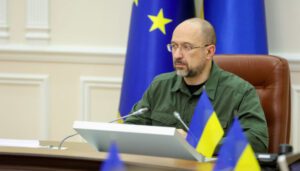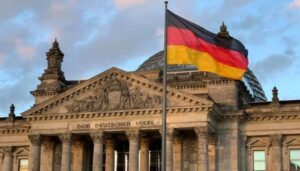
The Turkish vessel Polarnet, which left the port of Chornomorsk (Odessa region) on August 5 with 12,000 tons of corn from the Kernel agricultural holding, arrived at the Turkish port of Derince on August 8.
Kernel completed one of the most important missions – the first ship with Ukrainian grain arrived at its destination. The shipment was carried out as part of the initiative for the safe transportation of grain and food from Ukrainian ports,” the group of companies wrote on Facebook on Tuesday.
It is specified that the ship was loaded with corn at the Transbulkterminal grain terminal in Chornomorsk, which is part of Kernel. In the 2020/2021 marketing year (MY, July-June), the terminal handled 7.6 million tons of grain crops, which is 22% more than in MY 2019/2020, and became the largest in the country in terms of transshipment of agricultural products.
Agropromholding emphasized that Ukrainian agricultural exporters remain key suppliers of foreign exchange earnings to Ukraine, which is an important positive factor for the economy of the warring country.
“If we manage to maintain the trend and increase exports, farmers will not have to reduce the area under crops, and Ukraine will feel a deficit in state budget revenues,” Kernel summed up in the message.
Before the war, Kernel ranked first in the world in the production of sunflower oil (about 7% of world production) and its export (about 12%), and was also the largest producer and seller of bottled sunflower oil in Ukraine. In addition, the company was engaged in the cultivation of other agricultural products and their sale.
Its largest co-owner through Namsen Ltd. is Ukrainian businessman Andrey Verevsky with a share of 41.3%.
The agricultural holding in fiscal year 2021 (FY, July 2020 – June 2021), increased its net profit by 4.3 times compared to FY 2020 – up to $513 million, its EBITDA increased 2.1 times – up to $929 million, revenue – by 38%, to $5.65 billion.
Geographical structure of total trade in goods and services in 2021 (USD thousand)


Prime Minister Denys Shmyhal calls the preservation of macro-financial stability, financing the Armed Forces and support for people the priorities of the state budget for 2023.
“The priorities of the state budget for 2023 are maintaining macro-financial stability, financing the Armed Forces and supporting people,” Shmyhal wrote on the Telegram channel following a meeting with the team of the Ministry of Finance.
According to him, the draft state budget is drawn up taking into account the requirements of wartime: maintaining basic military and social spending, creating a rapid recovery fund, and continuing programs to stimulate the economy.
“I set the task for the Ministry of Finance to investigate the costs, especially those relating to state authorities. Everyone should clearly understand what is the real priority during the war,” the prime minister wrote.
financing Armed Forces, maintaining stability, supporting people

The World Bank Group on Monday, August 8, announced an additional $4.5 billion in grant funding to Ukraine from the United States under the PEACE project, which aims to help the government meet urgent needs caused by the ongoing war.
The United States, through the United States Agency for International Development (USAID), in coordination with the U.S. Treasury Department, is providing an additional $4.5 billion in direct budgetary support to the government of Ukraine to help mitigate the severe budget deficit caused by Putin’s brutal military aggression. USAID release.
According to him, the government of Ukraine will receive funding in tranches, starting with a payment of $3 billion in August.
The World Bank indicates that the additional funding will help maintain the government’s ability to perform core functions at the national and regional levels.
In particular, the funds will help the government of Ukraine cover social benefits, medical services and pensions that are necessary for the well-being of the country’s citizens and mitigating the social and economic consequences of the war.
“Ukraine needs the continuation of public services, including health care, education and social protection, to prevent further deterioration of living conditions and poverty,” World Bank Group President David Malpass said in the release.
He thanked the United States for its continued support through the World Bank’s rapid support mechanisms and for a generous grant that will greatly support the Ukrainian people.
The bank clarified that the additional funding is in addition to the $1.49 billion Investment Project Financing (IPF) approved in June 2022. To date, the World Bank has mobilized almost $13 billion in emergency funding, including commitments and pledges from donors, to support the continuation of essential public services in Ukraine and mitigate the effects of the war. As of the end of July 2022, more than $6.3 billion has been disbursed from this funding.

The Federal Council of Germany has published a decision to change the rules for the stay of Ukrainian citizens in the country from September 1, 2022.
According to the decision of the government, from September 1, for citizens of Ukraine, the registration of the time spent in the country begins. All days of stay will be taken into account, starting from February 24. Those Ukrainians who stay in Germany for more than 90 days will have to receive temporary protection status or leave the country for the next 90 days.
At the same time, Ukrainians who arrive in Germany after September 1, 2022 will also be able to legally stay in the country for 90 days without having to apply for registration of temporary protection status.
Registration for citizens of Ukraine will be open throughout the war.

In July of this year, 45.8 thousand used cars were added to the Ukrainian car fleet, which is 16% less than in July last year, and also 46% less than in June this year (the last month of preferential customs clearance) .
According to the information of the association “Ukravtoprom” in the Telegram channel, the lion’s share (75%) were registrations of cars older than 10 years, 15% – from 6 to 10 years, 10% – under 5 years old.
Most used cars in July were issued in the Lviv region (14% of the total), Volyn registration received 11% of cars, the third result was in the Rivne region – 8% of registrations.
Most often, Volkswagen cars are still registered, with 2.8 thousand used Volkswagen Passats and 2.7 thousand used Volkswagen Golfs registered in July. They are followed by Renault Megane – 2.2 thousand units, Skoda Octavia – 1.7 thousand units, Ford Focus – 1.3 thousand units.
In total, according to Ukravtoprom, in January-July, 310.2 thousand used cars were registered in Ukraine, which is almost a quarter more than in the same period last year.
According to the State Customs Service, given in the message, for the entire period of benefits (April-June 2022), almost 237 thousand vehicles were imported into Ukraine, including 9.272 thousand cars in July, of which 9.249 thousand were used.
As reported, the initial registration of new passenger cars in January-July amounted to 21.5 thousand units. – 63% less than a year earlier, including 3,648 thousand cars registered in July – 63% less than in July 2021, but 26% more than in June 2022.